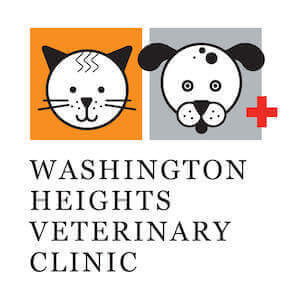At Washington Heights Veterinary Clinic, we perform a number of soft tissue surgeries, including spays and neuters, growth removals, intestinal foreign body removals, intestinal resection and anastomosis (removing part of the intestine), exploratory laparotomies (looking in the abdomen to try to determine the cause of symptoms or abnormal labwork), and amputations, just to name a few. We are not set up to perform fracture repair, but we have a great relationship with local specialty hospitals should your pet require this procedure.
All of our surgical procedures (as well as dental cleanings) require the patient to be under general anesthesia. There are inherent risks associated with anesthesia, and we understand that this can cause stress and anxiety for the owner. In an effort to ensure that each patient is healthy enough for anesthesia, a full workup including an exam, blood panel, and EKG is performed on each patient prior to surgery. On the day of surgery, each patient will be monitored and cared for by a team of three, including a veterinary assistant, veterinary technician, and veterinarian. This team is devoted to making sure your pet is as comfortable as possible, and for monitoring your pet during and after anesthesia.
After the pre-surgical workup, the surgery patient is given an injection of medication to help calm them down prior to induction of anesthesia. After about 30-45 minutes, an IV catheter is placed, and an injection is given into the vein to induce anesthesia. At that time, a breathing tube is placed into the airway, which helps to ensure that the patient has an open airway during the procedure. Anesthesia is maintained using an inhaled gas that is administered through the breathing tube. Every pet who is under general anesthesia is given IV fluids during the procedure to help maintain blood pressure and to ensure that they do not become dehydrated.
During anesthesia, we use a monitor to keep track of the patient’s respiratory rate, oxygenation percentage, EKG, heart rate, blood pressure, and temperature. Readings are recorded every 5 minutes, but monitoring is constant. Any changes in any of the parameters being measured can be addressed, if needed, by adjusting IV fluid rate or amount of anesthetic gas being delivered, or by administering additional medications. After the procedure is complete, the patient is slowly awakened by the surgery/anesthesia team. The pet remains here at our hospital for several hours afterward so we can ensure that their recovery is smooth and that they do not go home until they are awake enough to do so.
The veterinarian performing surgery on your pet does so using sterile techniques. After donning a cap and surgical mask, they will “scrub in” using a special iodine-based scrub. From there, they put on a sterile gown and gloves to make sure that when they touch the patient, they are “germ free.” The patient is also scrubbed in an aseptic/sterile manner, to remove as much of their “normal” bacteria from the surface of their skin as possible. For this reason, the majority of our surgery patients do not require any antibiotic therapy after their surgery.
We perform surgery Monday through Friday. If your pet has a surgery scheduled with us, it is important that they be fasted after 10 pm the night before the surgery (this means no food or treats, but they can continue to have access to water). They should also not receive any food or treats on the morning of surgery. They should be dropped off for surgery during their designated drop-off time, occurring between 7:30am and 8am, and you should expect to spend 10-15 minutes with the surgery technician to complete the surgery check-in process. Most pets who have elective procedures at Washington Heights Veterinary Clinic may go home that same afternoon. Your surgery technician will contact you before the procedure to let you know that your pet is entering surgery, and again after the procedure to update you on your pet’s recovery and to let you know what time they will be ready for pick-up.
Here at Washington Heights Veterinary Clinic, we do everything we can to ensure that the surgery experience is exceptional for you and for your pet. We welcome any and all questions before surgery to help ease any anxieties you may have.
